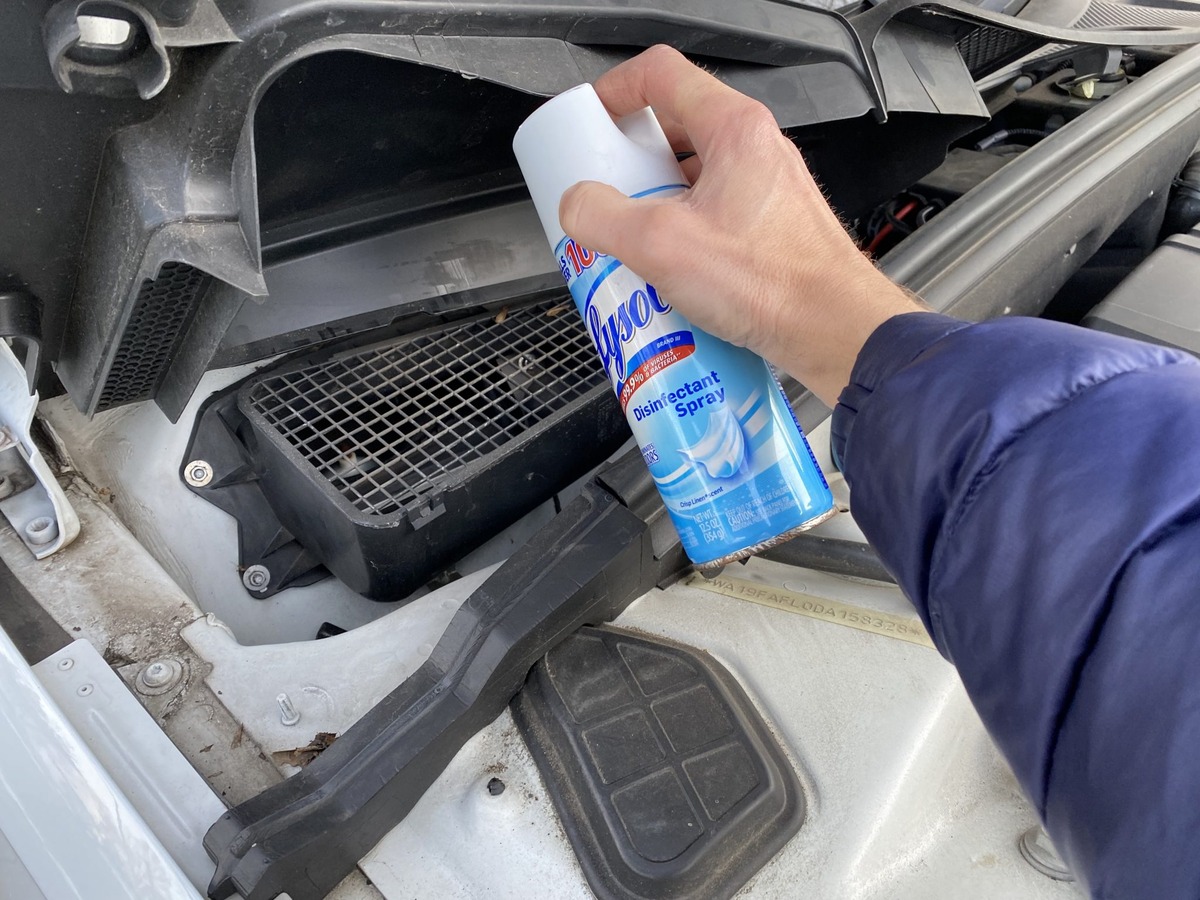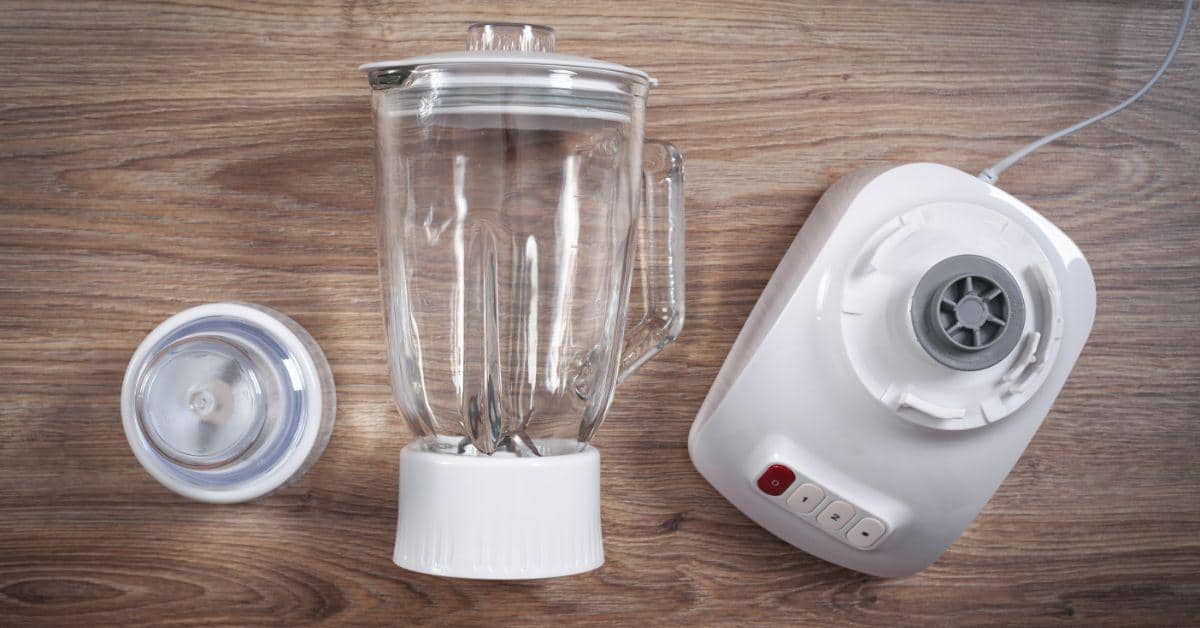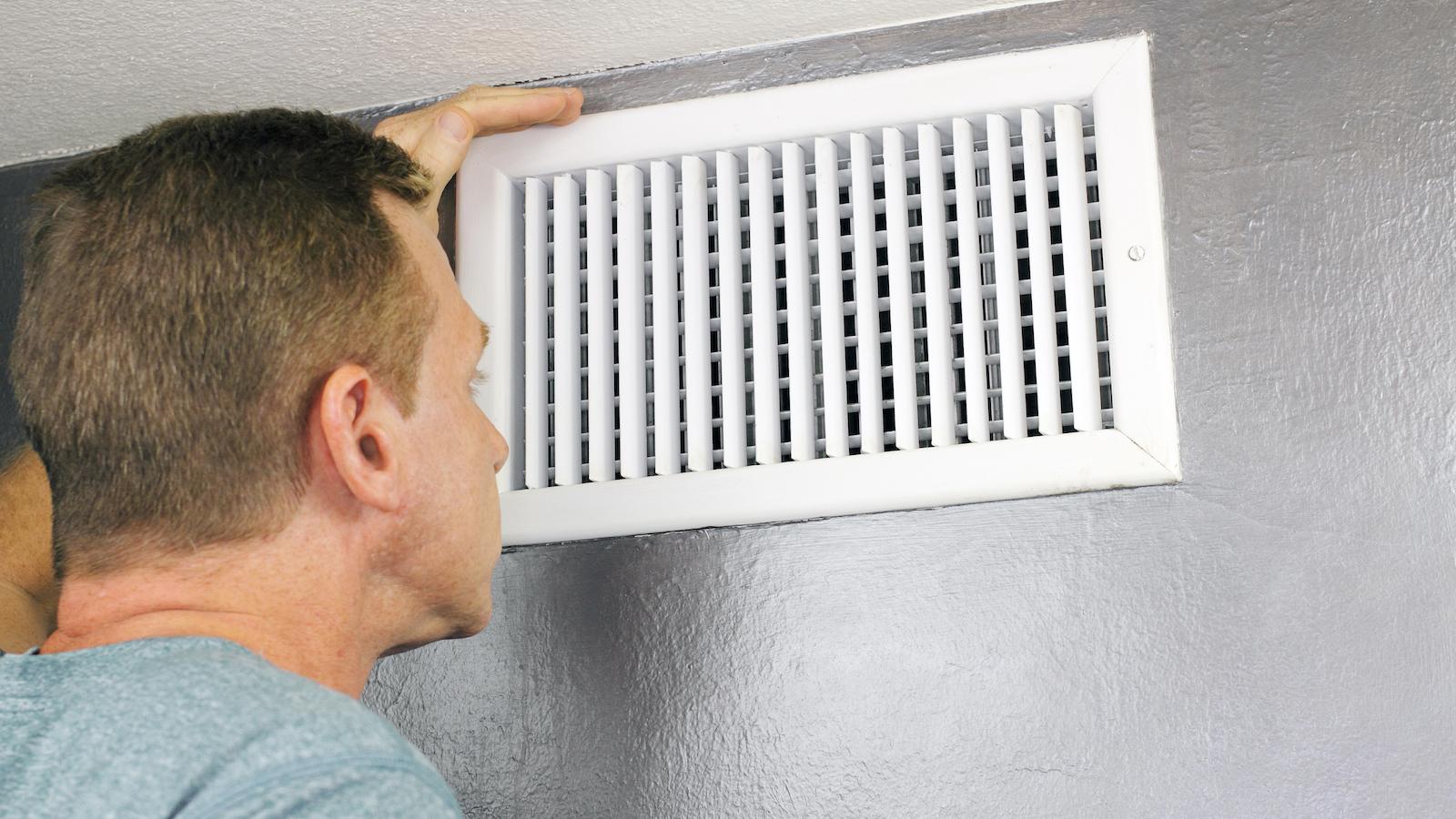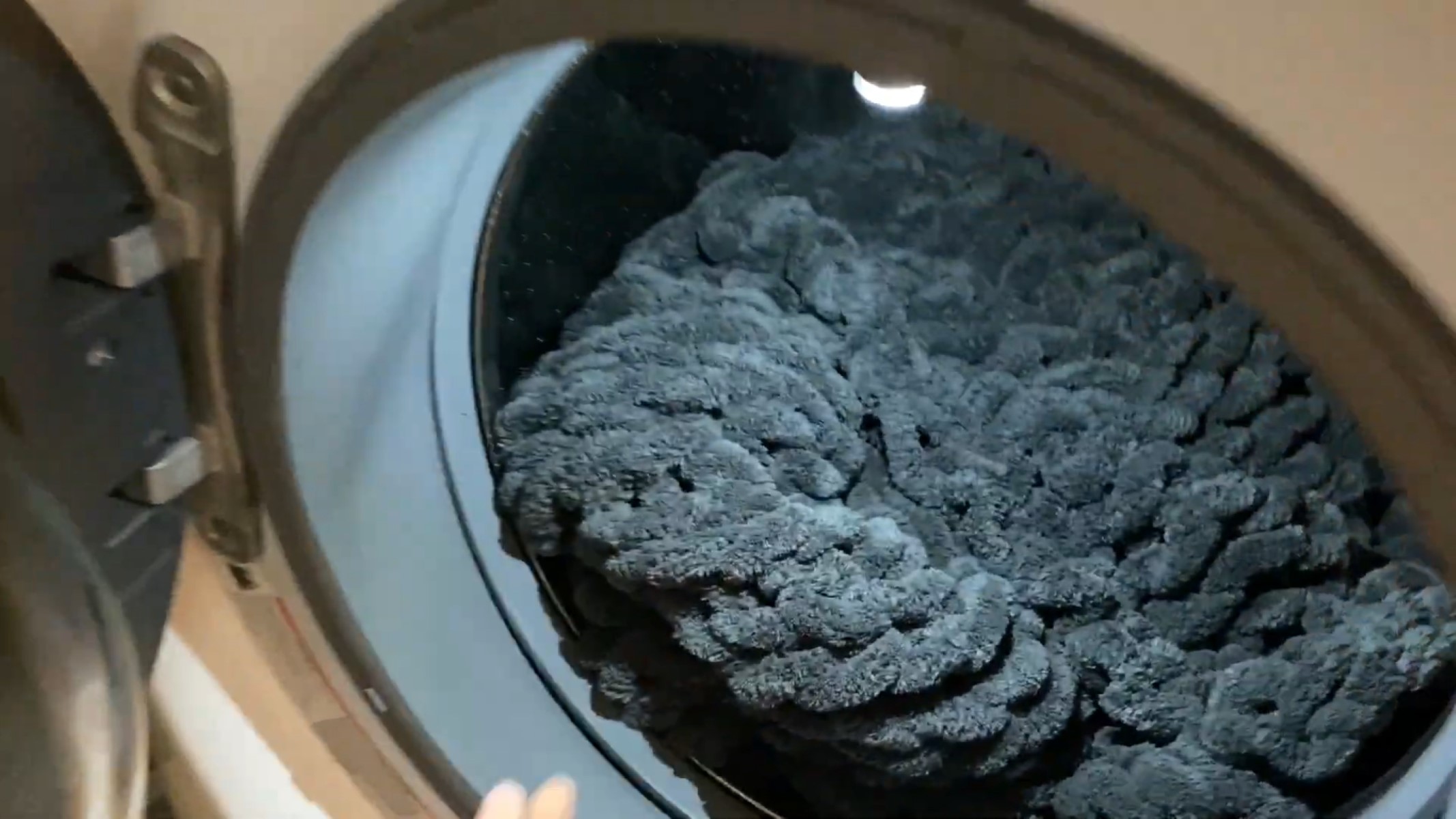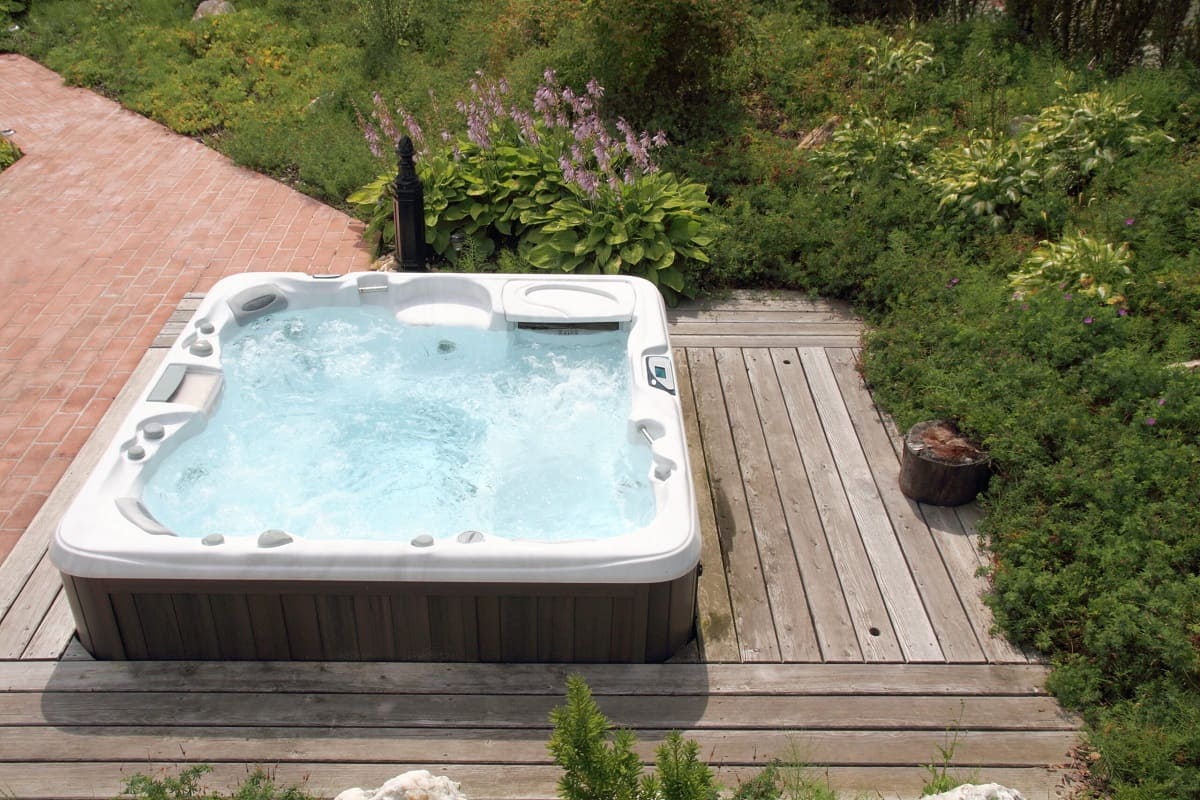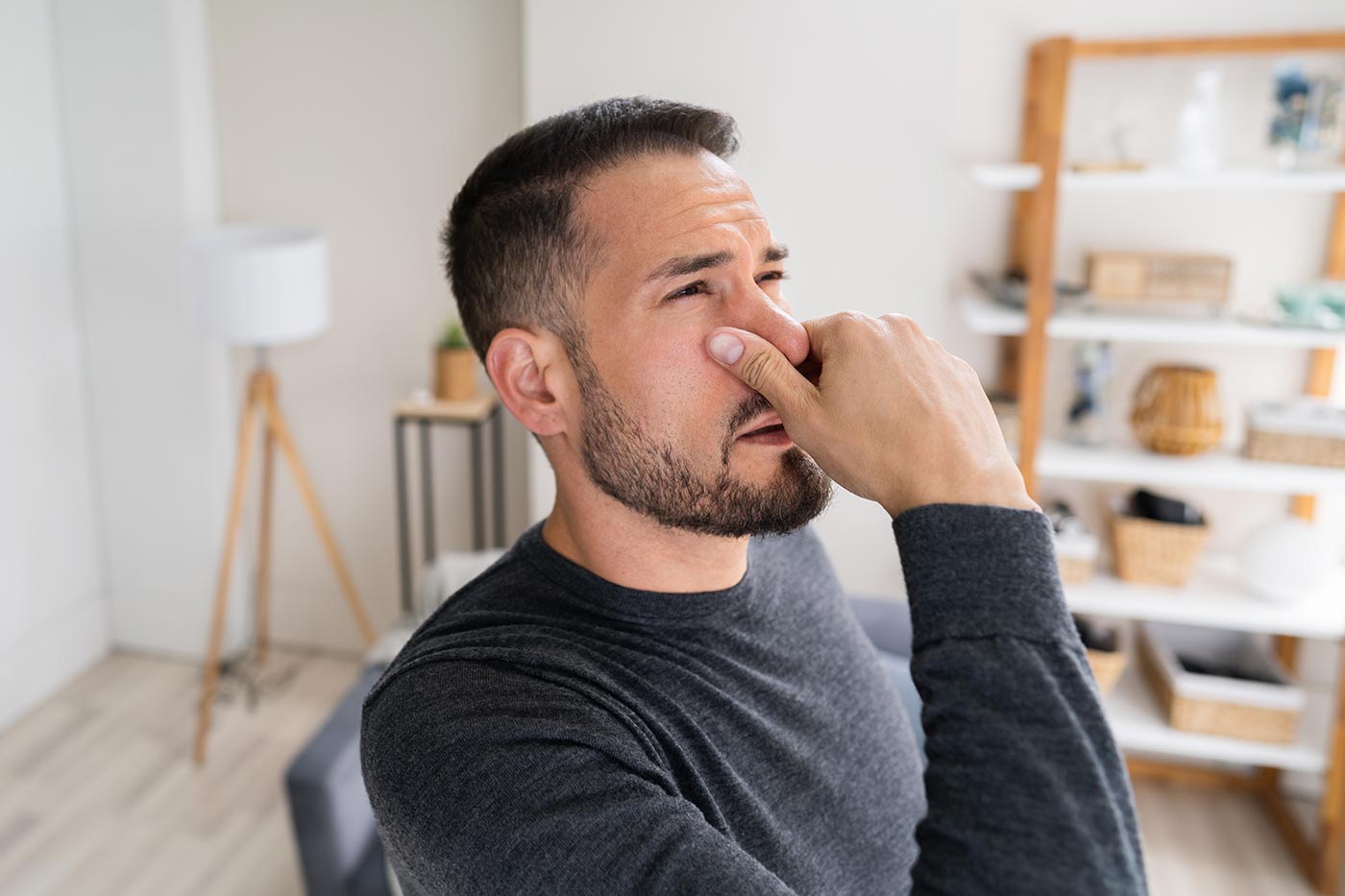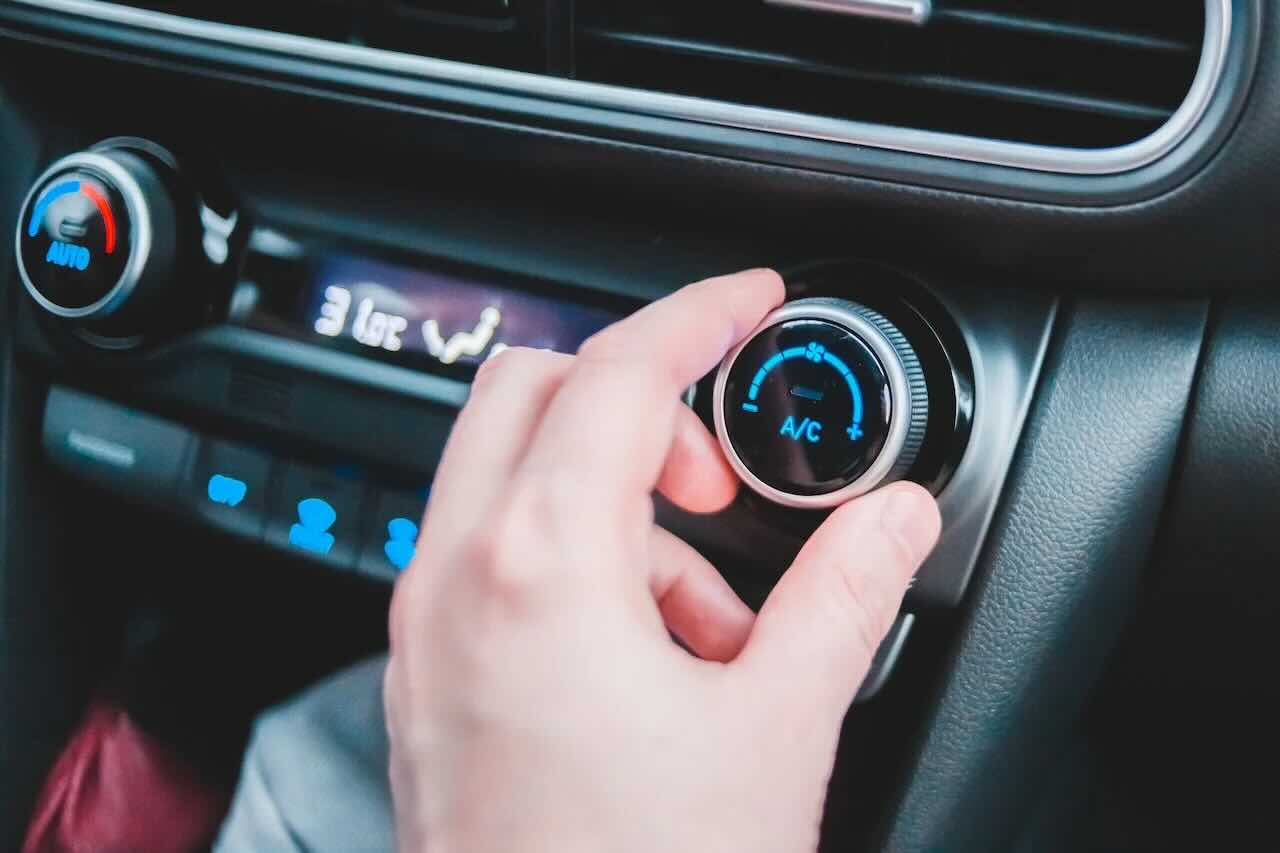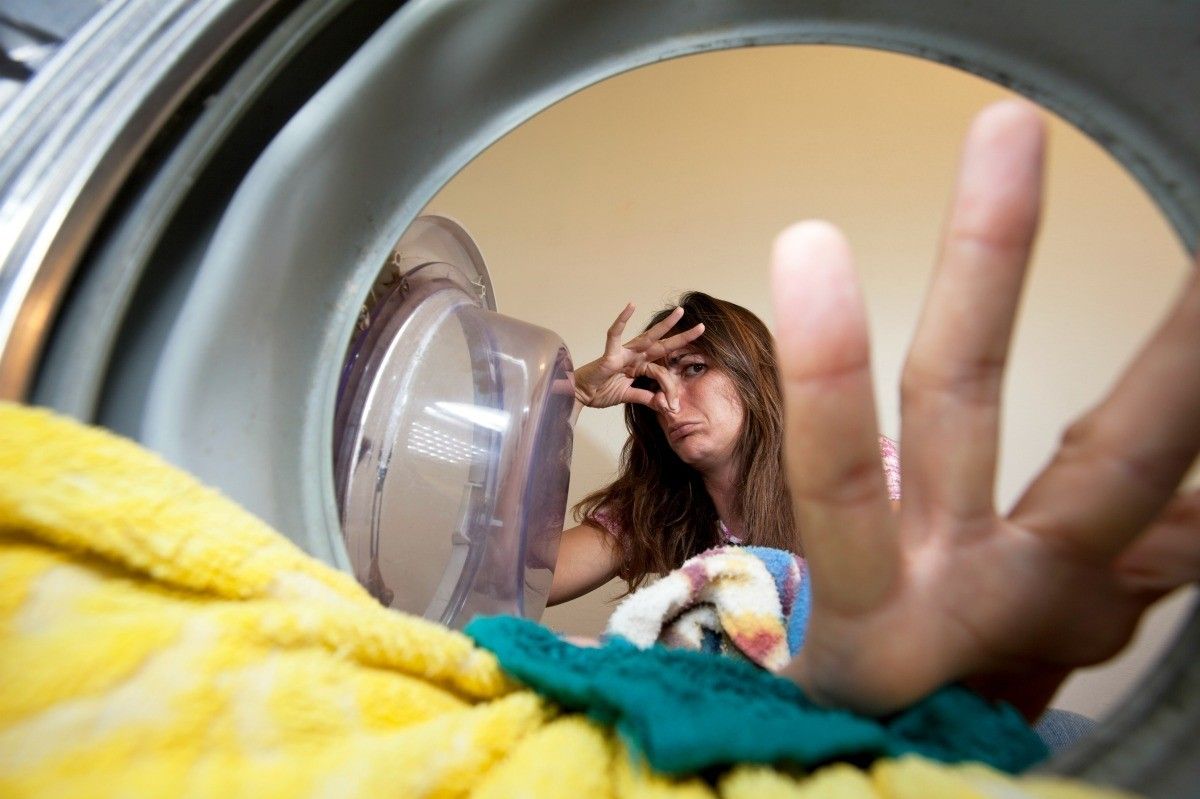Home>Home Maintenance>Why Does My Air Conditioning Smell
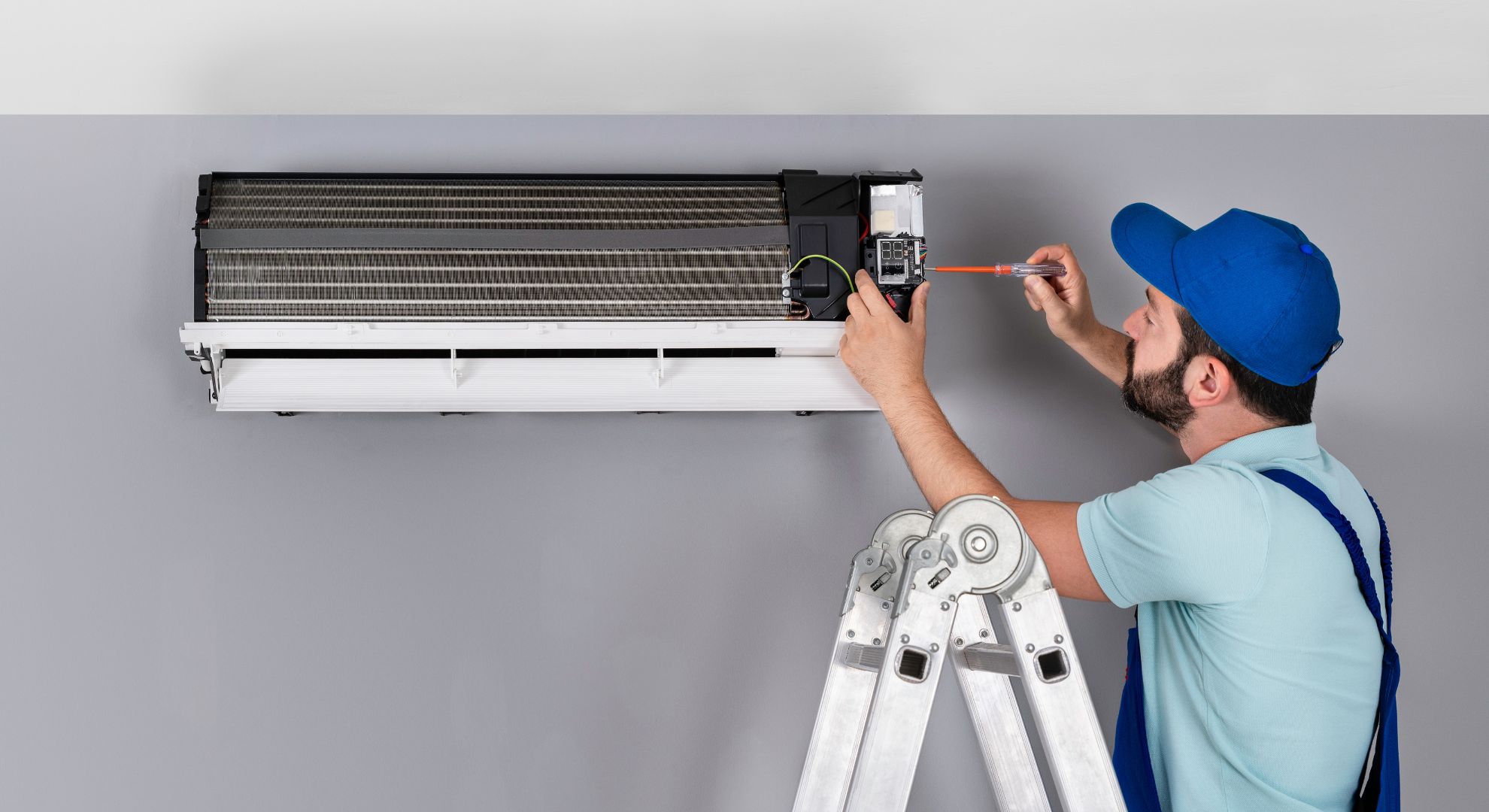

Home Maintenance
Why Does My Air Conditioning Smell
Modified: March 6, 2024
Discover the reasons behind the unpleasant smells in your air conditioning system and learn how to prevent them with proper home maintenance.
(Many of the links in this article redirect to a specific reviewed product. Your purchase of these products through affiliate links helps to generate commission for Storables.com, at no extra cost. Learn more)
Introduction
There’s nothing quite as refreshing as walking into a cool and comfortable home on a hot summer day. However, if you’re greeted with an unpleasant odor when you turn on your air conditioning, it can quickly put a damper on your enjoyment. The last thing you want is for your air conditioning system to be the source of a foul smell.
There can be several reasons why your air conditioning smells. It could be due to mold and mildew growth, bacteria and germs, dirty air filters, a clogged condensate drain, electrical issues, pet-related odors, or even external factors like smoke. In this article, we will explore these common causes of air conditioning smells and provide you with practical tips to prevent and address them.
Key Takeaways:
- Regular maintenance and cleaning of air filters, condensate drains, and evaporator coils are essential to prevent mold, bacteria, and pet-related odors in your air conditioning system, ensuring a fresh and healthy indoor environment.
- Addressing electrical issues promptly and minimizing external factors like smoke and pollution can help maintain a pleasant-smelling air conditioning system, contributing to a comfortable and odor-free home.
Read more: Why Does My Air Conditioning Smell Musty
Common Reasons for Air Conditioning Smells
When your air conditioning system emits a foul smell, it is usually an indication of an underlying issue. Here are some of the common reasons for air conditioning smells:
- Mold and Mildew: The growth of mold and mildew within your air conditioning system can cause a musty odor. This can happen when there is excess moisture buildup within the system, often due to a clogged condensate drain or high humidity levels. The presence of mold can also contribute to respiratory issues and allergies.
- Bacteria and Germs: Over time, bacteria and germs can accumulate on the evaporator coils and other parts of the air conditioning system. This can result in an unpleasant odor, similar to dirty socks or a locker room smell. Regular maintenance and cleaning can help prevent the growth of bacteria and eliminate the odor.
- Dirty Air Filters: If the air filters in your HVAC system are dirty or clogged, they can cause a stale or musty smell. When the air filters are not cleaned or replaced regularly, dust, dirt, and other particles can accumulate, leading to poor air quality and an unpleasant odor.
- Clogged Condensate Drain: The condensate drain in your air conditioning system is responsible for removing excess moisture. If the drain becomes clogged with debris, algae, or mold, it can cause water to pool and emit a foul smell. Regular maintenance and clearing of the condensate drain can help prevent this issue.
- Electrical Issues: In rare cases, electrical issues within the air conditioning system can cause a burning or metallic smell. If you notice any unusual smells, it is important to turn off your HVAC system and contact a professional technician to inspect and repair the problem.
- Pets and Potential Odor Sources: If you have pets in your home, their dander, hair, and even accidents can contribute to unpleasant odors in the air conditioning system. Regular cleaning and grooming of pets, as well as thorough cleaning of the air vents and ducts, can help minimize pet-related smells.
- Smoke and Other External Factors: Smoke from cigarettes, cigars, or nearby wildfires can infiltrate your home’s air conditioning system. This can lead to a smoky or burnt odor when the system is in use. Additionally, external factors like nearby industrial processes or pollution can also contribute to unpleasant smells.
Identifying the specific cause of the smell in your air conditioning system is important for effective resolution. In the next sections, we will discuss preventive measures and maintenance tips to help keep your air conditioning system smelling fresh and clean.
Mold and Mildew
One of the most common reasons for a foul smell coming from your air conditioning system is the growth of mold and mildew. Mold and mildew thrive in warm and damp environments, making your AC unit an ideal breeding ground. When moisture builds up in the system, it creates a perfect habitat for these fungi to grow.
The presence of mold and mildew not only causes a musty odor, but it can also have negative effects on your health. Breathing in mold spores can trigger allergies, respiratory problems, and even asthma attacks. Therefore, it is essential to address this issue promptly.
There are a few potential causes for mold and mildew growth in your air conditioning system:
- Clogged condensate drain: The condensate drain is responsible for removing excess moisture from your air conditioner. When it becomes clogged with dirt, debris, or algae, it can cause water to accumulate and create a breeding ground for mold and mildew.
- High humidity levels: If your home has high humidity levels, it can contribute to mold and mildew growth. Excessive moisture in the air provides the ideal conditions for these fungi to thrive.
- Leaking ductwork: If there are leaks in your air ducts, it can introduce moisture into the system. This moisture can lead to mold and mildew growth if not addressed promptly.
To remove the mold and mildew smell from your air conditioning system, you will need to take the following actions:
- Clean or replace air filters: Dirty air filters can contribute to moisture buildup and mold growth. Regularly clean or replace your air filters to maintain good indoor air quality and prevent mold from spreading.
- Clean the condensate drain: If you suspect the condensate drain is clogged, you can use a wet/dry vacuum or a pipe cleaner to remove the debris. If the clog persists or you’re unsure how to proceed, it is best to contact a professional HVAC technician for assistance.
- Monitor and control humidity levels: Use a dehumidifier or ensure your home’s humidity levels are maintained between 30-50%. This will help prevent moisture buildup and inhibit mold and mildew growth.
- Inspect and repair ductwork: If you suspect there are leaks in your ductwork, have it inspected by an HVAC professional. They can seal any leaks and prevent moisture from entering the system.
- Consider UV light installation: UV lights installed within the air conditioning system can help kill mold and mildew spores, preventing their growth. Consult with an HVAC professional to determine if this is a suitable option for your system.
Regular maintenance and preventive measures are crucial for keeping mold and mildew at bay. By addressing the underlying causes and implementing these steps, you can ensure your air conditioning system remains fresh and odor-free.
Bacteria and Germs
When it comes to the unpleasant odors coming from your air conditioning system, bacteria and germs can be another common culprit. Over time, these microorganisms can accumulate on the evaporator coils, air filters, and other components of your AC unit, resulting in a foul smell akin to dirty socks or a locker room.
Bacteria and germs thrive in damp and dark environments, making your air conditioner an ideal breeding ground if not properly maintained. These microorganisms can not only cause bad odors but also contribute to poor indoor air quality and potentially lead to health issues.
Here are a few key reasons for the growth of bacteria and germs in your air conditioning system:
- Inadequate cleaning and maintenance: If your air conditioning system is not cleaned regularly, it provides a hospitable environment for bacteria and germs to multiply. These microorganisms can thrive on dust, dirt, and other contaminants that accumulate within the system.
- Moisture and condensation: Excess moisture within the air conditioning system, such as from a clogged condensate drain or high humidity levels, can create the perfect conditions for bacterial growth. The moisture combined with dust and organic matter serves as a food source for bacteria and encourages their proliferation.
- Poor air circulation: Insufficient air circulation in your home can contribute to the stagnation of air within the AC system. When air doesn’t circulate properly, it allows bacteria and germs to settle and multiply in the moist environment of the evaporator coils, air filters, and other components.
To eliminate the bacteria and germs causing the unpleasant odor, follow these steps:
- Clean or replace air filters: Dirty or clogged air filters provide a breeding ground for bacteria and germs. Regularly clean or replace the filters according to manufacturer guidelines to maintain good indoor air quality and prevent the proliferation of these microorganisms.
- Clean evaporator coils and other components: Schedule regular maintenance where an HVAC professional can clean the evaporator coils, drain pans, and other components of your air conditioning system. This will help remove any buildup of bacteria and germs and prevent their spread.
- Use antimicrobial treatments: Consider using antimicrobial treatments specifically designed for air conditioning systems. These treatments can help inhibit the growth of bacteria and germs, reducing odor and improving overall air quality.
- Improve air circulation: Ensure proper air circulation throughout your home by keeping doors and vents open, using ceiling fans, and maintaining a well-ventilated environment. This will help prevent the stagnation of air and discourage the growth of bacteria and germs.
- Maintain optimal humidity levels: Monitor and control humidity levels in your home to prevent excessive moisture. Using a dehumidifier can help maintain humidity levels between 30-50%, inhibiting the growth of bacteria and germs.
By implementing these preventive measures and cleaning routines, you can effectively eliminate the presence of bacteria and germs in your air conditioning system, ensuring a fresh and clean-smelling indoor environment.
Dirty Air Filters
One of the most common reasons for a foul smell coming from your air conditioning system is dirty air filters. Air filters play a crucial role in trapping dust, pollen, pet dander, and other airborne particles, ensuring clean and fresh air circulates throughout your home. However, when these filters become dirty or clogged, they can significantly impact indoor air quality and create unpleasant odors.
There are a few reasons why dirty air filters can cause a foul smell in your air conditioning system:
- Buildup of contaminants: As air filters trap and capture particles, a layer of dust, dirt, and other debris begins to accumulate. Over time, this buildup can create a stagnant environment, leading to the growth of mold, mildew, and other odor-causing bacteria.
- Restricted airflow: Dirty air filters can restrict the airflow through your HVAC system. When less air can pass through, it can cause moisture to accumulate, creating a breeding ground for odor-causing microorganisms.
- Inefficient filtration: Clogged air filters are less effective at capturing pollutants, which means more particles circulate in the air. This can lead to unpleasant smells, especially if there are pet dander, cooking odors, or other odor sources present in your home.
To address the issue of dirty air filters and eliminate the associated odor, follow these steps:
- Regularly clean or replace air filters: Check your air filters monthly and clean or replace them as needed. Follow the manufacturer’s guidelines for proper maintenance. Disposable filters should be replaced, while reusable filters can be cleaned using a vacuum or washed with mild soap and water.
- Consider upgrading to high-quality filters: If you are constantly dealing with odors or have allergy sufferers in your home, consider upgrading to high-efficiency air filters. These filters are designed to capture smaller particles and can help improve indoor air quality.
- Set a reminder for filter replacement: To ensure regular maintenance, set a reminder to check and replace your air filters every 1-3 months. This will prevent them from becoming clogged and reduce the chances of odor buildup.
- Keep your home clean: Regularly dust and vacuum your home to minimize the amount of dust and debris that enters your HVAC system. This will help reduce the strain on your air filters and maintain better air quality.
- Consider professional duct cleaning: If the odors persist or you suspect that there is a significant buildup of contaminants within your HVAC ductwork, consider hiring a professional duct cleaning service. They can thoroughly clean the ducts, eliminating odor-causing particles and improving overall air quality.
By maintaining clean air filters and following these preventive measures, you can ensure a fresh-smelling environment and optimal performance from your air conditioning system.
Read more: Why Does My Toilet Water Smell
Clogged Condensate Drain
A clogged condensate drain is another common cause of foul odors in your air conditioning system. The condensate drain is responsible for removing excess moisture that accumulates during the cooling process. When this drain becomes clogged, it can lead to water buildup and create an environment conducive to the growth of mold, mildew, and bacteria.
Here are a few reasons why the condensate drain might become clogged:
- Dirt and debris: Over time, dirt, dust, and other debris can accumulate in the condensate drain, obstructing the flow of water. This can lead to water backup and unpleasant odors.
- Algae and mold: Warm and humid conditions within the condensate drain can encourage the growth of algae and mold. These microorganisms can quickly multiply and form blockages that obstruct the drain.
- Improper installation: If the condensate drain was not installed correctly, it can become misaligned or have weak joints that contribute to clogs. It is crucial to ensure proper installation to avoid drainage problems.
To address a clogged condensate drain and eliminate the associated odor, follow these steps:
- Inspect the condensate drain: Locate the condensate drain and visually inspect it to see if there are any visible blockages. Look for signs of standing water, algae growth, or mold. Use a flashlight if necessary.
- Clean the condensate drain line: If you find visible blockages, try using a wet/dry vacuum or a pipe cleaner to remove the debris. Ensure that the power to your air conditioning system is turned off before attempting any cleaning. You can also mix a solution of equal parts vinegar and water and pour it down the condensate drain to help dissolve any buildup.
- Clear the condensate drain pan: In addition to the drain line, make sure to clean out the condensate drain pan. Remove any standing water or debris that has accumulated in the pan.
- Prevent future clogs: To prevent future clogs in the condensate drain, consider installing a condensate line cleaning device or an algae prevention tablet. These devices can help inhibit the growth of algae and minimize the chances of clogs.
- Regular maintenance: Schedule regular maintenance for your air conditioning system, including professional inspections and cleaning. A professional HVAC technician can perform a thorough cleaning of the condensate drain line and pan, ensuring it remains free of clogs.
By regularly inspecting and cleaning the condensate drain, you can prevent clogs and the associated foul odors. Keeping the condensate drain clear and functioning properly is essential for maintaining the efficiency and air quality of your air conditioning system.
Regularly changing your air filter can help prevent your air conditioning from emitting unpleasant odors. This simple maintenance task can improve air quality and reduce the risk of mold and bacteria buildup.
Electrical Issues
In rare cases, electrical issues within your air conditioning system can cause a foul smell. If you notice a distinct burning or metallic odor when your air conditioner is running, it is essential to address the issue promptly. Electrical problems can pose a safety risk and may indicate a malfunctioning component or wiring within the system.
Here are a few potential electrical issues that can cause a smell in your air conditioning system:
- Burned-out motor: A burned-out motor can emit a distinct burning smell. The motor may have overheated due to a lack of lubrication or a malfunctioning component, leading to a burnt odor.
- Faulty wiring: If there are faulty or frayed wires within your air conditioning system, it can lead to electrical arcing. Arcing refers to sparks that occur between wires or contact points. This can produce a burning odor and poses a fire hazard.
- Malfunctioning capacitor: The capacitor in your air conditioning system helps regulate the electrical current. If the capacitor becomes faulty or fails, it can lead to electrical issues and potentially emit a burning smell.
- Overloaded circuit: An overloaded circuit occurs when there is excessive electrical current flowing through a circuit. This can result in overheating and emit a burning odor. Overloaded circuits are often caused by running multiple appliances or equipment simultaneously on the same circuit.
If you detect a burning smell coming from your air conditioning system, take the following actions:
- Turn off the power: Immediately turn off the power to your air conditioning system at the circuit breaker. This will help prevent further potential damage and eliminate the risk of electrical hazards.
- Contact a professional technician: It is crucial to contact a licensed HVAC technician to inspect and address the electrical issue. Attempting to repair electrical problems yourself can be dangerous and may void any equipment warranties.
- Do not attempt to restart the system: Until a professional technician has examined and resolved the electrical issue, do not attempt to restart your air conditioning system. Restarting it prematurely can cause further damage or exacerbate the problem.
- Regular air conditioning maintenance: To prevent electrical issues, it is essential to schedule regular maintenance for your air conditioning system. Professional technicians can inspect the electrical components, identify any potential issues, and perform necessary repairs or replacements to ensure safe operation.
Electrical issues should be taken seriously and addressed by qualified professionals. If you smell burning or detect any other unusual odors coming from your air conditioning system, prioritize safety and contact an experienced HVAC technician for assistance.
Pets and Potential Odor Sources
If you have pets in your home, they can contribute to unpleasant odors in your air conditioning system. Pets can produce dander, fur, and even have accidents that can generate strong smells. These odors can become trapped in the air filters and ductwork of your HVAC system, resulting in an unpleasant scent when the air conditioner is running.
Here are a few potential odor sources related to pets:
- Pet dander: Pet dander refers to the tiny flakes of skin shed by animals. It can trigger allergies and, over time, build up in your air conditioning system. The accumulation of pet dander can create an unpleasant odor when the air is circulated.
- Pet hair: Pet hair can easily get trapped in the air filters and ductwork of your HVAC system. As it accumulates, it can produce a musty smell, especially when the air conditioner is running and circulating air.
- Accidents and urine: If your pet has accidents in your home, the lingering urine odor can permeate the air and get absorbed by your air conditioning system. This can lead to persistent unpleasant smells until the affected areas are properly cleaned and deodorized.
- Pet bedding and toys: The bedding and toys of your pets can also contribute to odors in your home. If these items are not cleaned regularly, they can emit smells that can be pulled into the air conditioning system when the air is circulated.
To mitigate the impact of pet-related odors in your air conditioning system, follow these steps:
- Regular pet grooming: Regularly grooming your pets can help minimize shedding and reduce the amount of pet hair and dander in your home. This, in turn, helps reduce the accumulation of these particles in your air conditioning system.
- Wash pet bedding and toys: Clean and wash your pet’s bedding and toys regularly to eliminate any odor-causing contaminants. Use pet-friendly detergents and follow the manufacturer’s instructions for best results.
- Vacuum and dust frequently: Regular vacuuming and dusting can help remove pet hair and dander from your home. Pay close attention to areas where pets spend time, such as carpets, upholstery, and corners of rooms.
- Change air filters regularly: Changing your air filters at least every 1-3 months can help prevent pet-related odors from circulating through your air conditioning system. Use filters designed to capture pet dander and hair for optimal results.
- Clean and deodorize affected areas: If your pet has accidents in your home, thoroughly clean and deodorize the affected areas to remove urine odors. Use pet-specific odor-neutralizing products or consult a professional for deep cleaning if necessary.
By addressing pet-related odors and implementing these preventive measures, you can minimize their impact on your air conditioning system and maintain a fresh-smelling home.
Smoke and Other External Factors
In addition to internal factors, like mold or pet odors, external factors such as smoke can contribute to unpleasant smells in your air conditioning system. Smoke from various sources, including cigarettes, cigars, and wildfires, can infiltrate your home and become trapped in your HVAC system, resulting in lingering odors.
Here are a few external factors that can cause odors in your air conditioning system:
- Cigarette and cigar smoke: Smoke from cigarettes and cigars contains numerous chemicals and particles that can permeate your home’s air. These odors can become trapped in the air filters, ductwork, and other components of your air conditioning system.
- Wildfire or outdoor pollution: If there are wildfires in your area or significant outdoor pollution, the smoke and contaminants in the air can enter your home and get pulled into your HVAC system. This can result in unpleasant odors lingering within the system.
- Nearby industrial processes: Depending on your location, nearby industrial processes can release odorous substances into the air. These odors can find their way into your home and affect your air conditioning system, causing an unpleasant smell.
To address odors caused by smoke and external factors, consider the following steps:
- Change air filters frequently: Changing your air filters more frequently can help remove particles and odors related to smoke. Opt for filters with activated carbon or charcoal to better capture and neutralize odors.
- Keep windows and doors sealed: During periods of heavy smoke or outdoor pollution, keep your windows and doors closed to minimize the entry of odorous substances into your home. Ensure that your home is properly insulated and sealed to prevent air leakage.
- Use air purifiers: Consider using air purifiers with HEPA filters or activated carbon filters to further remove odors from the air. These devices can help improve the overall indoor air quality by capturing and neutralizing smoke-related particles and odors.
- Consider professional duct cleaning: If the odors persist or if you suspect significant smoke contamination within your HVAC system, it may be beneficial to hire a professional duct cleaning service. They can thoroughly clean the ducts and remove any trapped particles and odors.
- Maintain good ventilation: Ensure that your ventilation system is functioning properly. Good airflow and ventilation can help flush out and dilute odors in your home, improving air quality.
While it may be challenging to completely eliminate odors caused by smoke and external factors, taking these steps can significantly reduce their impact on your air conditioning system and indoor air quality.
Read more: Why Does My Car Air Conditioner Smell
Prevention and Maintenance Tips
Preventing odors in your air conditioning system and ensuring its optimal performance requires regular maintenance and proactive measures. By following these prevention and maintenance tips, you can keep your system running smoothly and maintain a fresh and odor-free indoor environment:
- Regularly clean and replace air filters: Cleaning or replacing your air filters every 1-3 months is crucial for maintaining good indoor air quality and preventing the accumulation of dust, debris, and contaminants that can cause odors.
- Schedule professional maintenance: Regular professional maintenance is vital to keep your air conditioning system in top shape. HVAC technicians can inspect and clean components, identify any issues, and lubricate moving parts, ensuring optimal performance and reducing the chances of odors.
- Clean evaporator coils and condensate pans: Over time, evaporator coils can accumulate dirt and debris, while condensate pans can collect standing water, leading to odors. Regular cleaning of these components helps prevent mold, mildew, and bacteria growth.
- Clear the condensate drain: Ensure the condensate drain remains clear and free from debris to prevent water buildup, which can contribute to musty odors and mold growth. Use a wet/dry vacuum or a pipe cleaner to remove any clogs.
- Maintain optimal humidity levels: Excessive humidity can promote the growth of mold, mildew, and bacteria. Use dehumidifiers to keep humidity levels between 30-50% and prevent moisture-related odors.
- Keep the area around the outdoor unit clean: Remove any debris, leaves, or vegetation around the outdoor unit of your air conditioning system. This allows for proper airflow and prevents potential odor sources from entering the system.
- Address pet odors promptly: Regularly groom your pets, clean their bedding and toys, and promptly address any pet accidents inside your home. This helps minimize pet-related odors and prevents them from being circulated by the air conditioning system.
- Monitor and address smoke or external odor sources: During periods of smoke, outdoor pollution, or industrial processes, take measures to minimize the entry of odorous substances into your home. Keep windows and doors sealed, use air purifiers, and consider professional duct cleaning if necessary.
- Consider UV light installation: Installing UV lights within your air conditioning system can help kill mold, mildew, and bacteria, preventing them from causing odors and maintaining a fresher environment.
Remember, prevention and regular maintenance are key to ensuring your air conditioning system remains odor-free and operates efficiently. By implementing these tips and addressing any potential issues promptly, you can enjoy clean air and a comfortable living space.
Conclusion
If you’ve ever noticed a foul smell coming from your air conditioning system, you know how unpleasant it can be. Fortunately, there are common reasons for these odors, and by understanding them, you can take the necessary steps to prevent and address them.
Mold and mildew growth, bacteria and germs, dirty air filters, clogged condensate drains, electrical issues, pet-related odors, smoke, and other external factors can all contribute to unwanted smells in your air conditioning system. However, by implementing regular maintenance and following preventive measures, you can keep your system odor-free and functioning optimally.
It’s crucial to regularly clean or replace your air filters, schedule professional maintenance, clean evaporator coils and condensate pans, clear condensate drains, and maintain optimal humidity levels to prevent the growth of mold, mildew, and bacteria.
Additionally, addressing pet-related odors promptly, managing smoke and external factors, and considering UV light installation or other air purification methods can further help in maintaining a fresh and pleasant indoor environment.
Remember, if you encounter any unusual or persistent odors, it’s important to address them promptly. Contact a professional HVAC technician to inspect and resolve any electrical issues or perform deep cleaning when necessary.
By following these preventive measures and maintenance tips, you can ensure your air conditioning system remains odor-free, provides clean and fresh air, and contributes to a comfortable and healthy home environment.
Keep your air conditioning system in top shape, and say goodbye to unwelcome odors!
Frequently Asked Questions about Why Does My Air Conditioning Smell
Was this page helpful?
At Storables.com, we guarantee accurate and reliable information. Our content, validated by Expert Board Contributors, is crafted following stringent Editorial Policies. We're committed to providing you with well-researched, expert-backed insights for all your informational needs.
